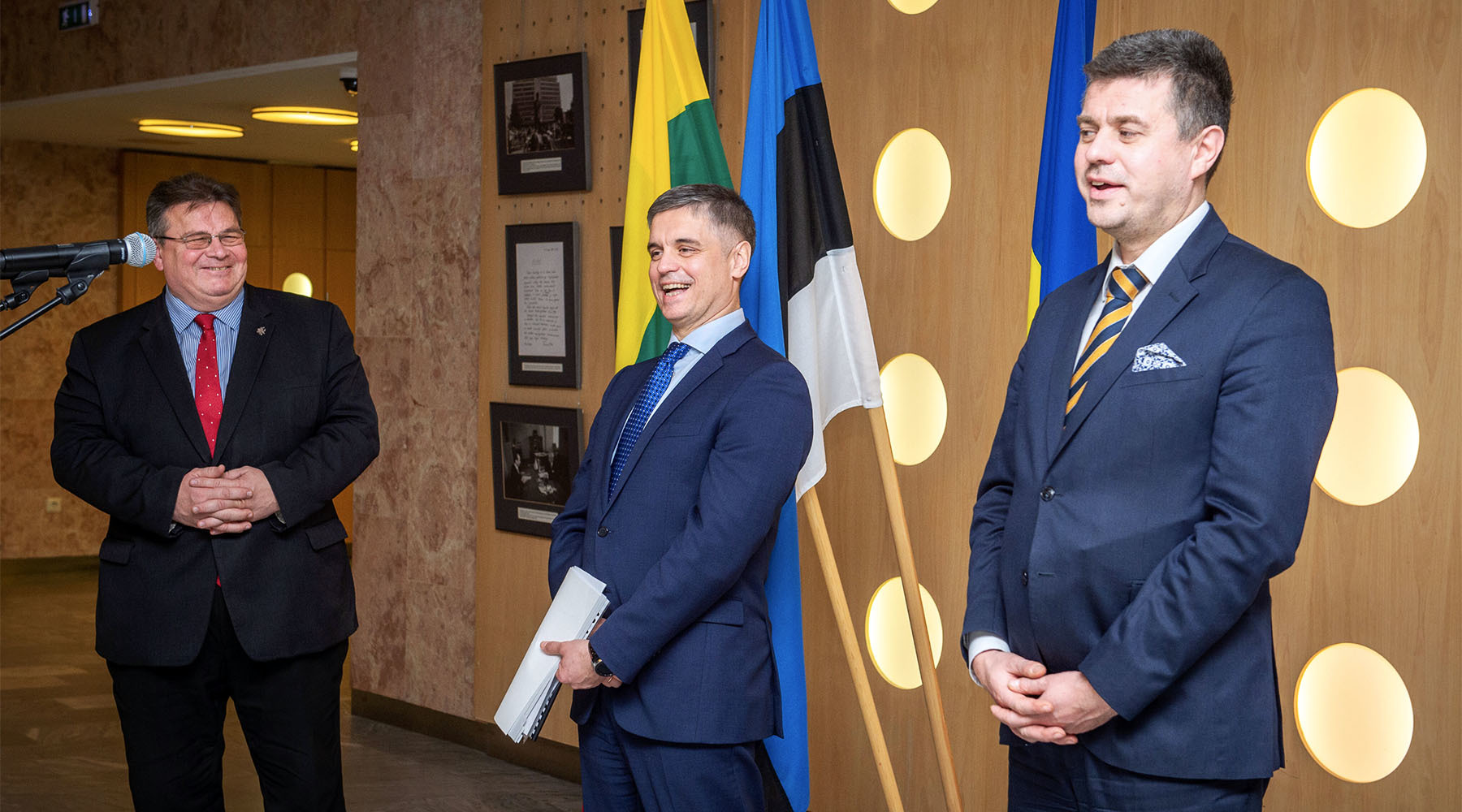A statement by the foreign ministers of four countries (Ukraine, Lithuania, Estonia, Sweden) regarding the Sea of Azov is groundless, said RT First Deputy Chairman of the Federation Council Committee on Foreign Affairs Vladimir Dzhabarov. In particular, he recalled the existence of rules for the passage of vessels through the Kerch Strait.
“This alliance between countries, in particular between Sweden and Ukraine, we are observing at the OSCE Parliamentary Assembly. The representatives of Sweden in everything and always support the Ukrainian delegation in its Russophobic attacks. So, these are all links of one chain and one policy. Such statements do not honor politicians in these countries. As we know, now Europe is set to reduce confrontation, to establish contacts with Russia. But these countries continue to stir up water, ”Jabarov said.
Constant monitoring in the area of the Crimean bridge meets the national security requirements of Russia and allows you to maintain a peaceful sky over the peninsula. This opinion was expressed by the State Duma deputy from the Crimea Ruslan Balbek. According to him, even when relations between Moscow and the West become more rosy and friendly, patrolling and monitoring the situation in the Kerch Strait will not stop.
“There will be no passage yard for all comers in the Kerch Strait. We made a goodwill gesture - handed the violating ships to Ukraine, returned the sailors to their homeland. If in Kiev they think that now these positive steps on the part of Moscow will turn into a habit and begin to grow exponentially - this is a political fallacy. And no matter how many countries ask us or demand to leave the Strait of Kerch, this will not happen. In addition, the West should learn from Russia how to conduct a dialogue - not to rattle arms at the borders, but to talk, to take steps towards each other, ”the parliamentarian said in an interview with RT.
In turn, the chairman of the Federation Council Commission on Information Policy, Alexei Pushkov, called the appeal of the heads of the foreign affairs agencies of the four states “an attack of the vanguard”.
“The foreign ministers of Sweden, Lithuania, Estonia and Ukraine called for an extension of sanctions against Russia. Of these, only three countries are related to EU sanctions - Ukraine has nothing to do with it. The group does not have Latvia, Poland, Britain, or another 21 EU countries. This is an avant-garde attack. The rest are waiting for Paris on December 9, ”the senator wrote on Twitter.
On the eve of the foreign ministers of Ukraine, Sweden, Estonia and Lithuania called on Russia to comply with international law and its fundamental principles. In addition, Vadim Pristayko, Anne Linde, Urmas Reinsalu and Linas Linkevichus condemned the "violation of the sovereignty and territorial integrity of Ukraine" by the Russian Federation. In addition, they blamed Russia for the conflict in the Donbass, to the resolution of which Kiev has made persistent efforts.
“We are consistently pursuing a policy of non-recognition (reunification of Crimea with Russia. - RT ), including through restrictive measures,” the joint statement of the foreign ministers said.
In addition, in the context of the transfer to Kiev of warships participating in the provocation in the Kerch Strait in November 2018, Moscow was called upon to fulfill international obligations.
“By providing unhindered access to Ukrainian ports in the Sea of Azov and freedom of navigation,” the ministers added.
As follows from the photographs presented by the Estonian Foreign Ministry, the Swedish Minister Ann Linde was absent at the meeting in Tallinn. At the time of publication of the article on the website of the Foreign Ministry of the Scandinavian Republic, there was also no information on the joint statement of the countries.
- Linas Linkevicius, Vadim Priestayko and Urmas Reinsalu at a meeting in Tallinn
- Flickr
- © Estonian Foreign Ministry
Recall that on November 25, 2018, the ships of the Naval Forces of Ukraine illegally crossed the state border of Russia and entered the territorial waters of the country, after which officers of the FSB border service were involved to stop them. On board the tugboat Yana Kapu and the small armored artillery boats Nikopol and Berdyansk there were 22 sailors and two SBU officers who were detained. The detainees were charged under Part 3 of Art. 322 of the Criminal Code (illegal crossing of the state border of the Russian Federation committed by an organized group). However, as a result of the agreement between the presidents of the two states - Vladimir Putin and Vladimir Zelensky - all the Ukrainian military returned to their homeland during the exchange of retained persons between Russia and Ukraine in the format "35 to 35". On November 18, Moscow handed over warships to Kiev, but the Ukrainian side made accusations regarding the condition of the ships and the theft of various equipment from them.
In addition, in Kiev after the incident in the Kerch Strait, they began to express claims to Russia regarding access to the waters of the Sea of Azov. So, in February, Pavel Klimkin, who held the post of Minister of Foreign Affairs of Ukraine at that time, even announced the imminent breakdown of the agreement on the legal status of water areas, signed on December 24, 2003. The agreement is still valid, and in November, the countries reached a consensus on most of the points of the protocol on the use of natural resources of the Sea of Azov.

